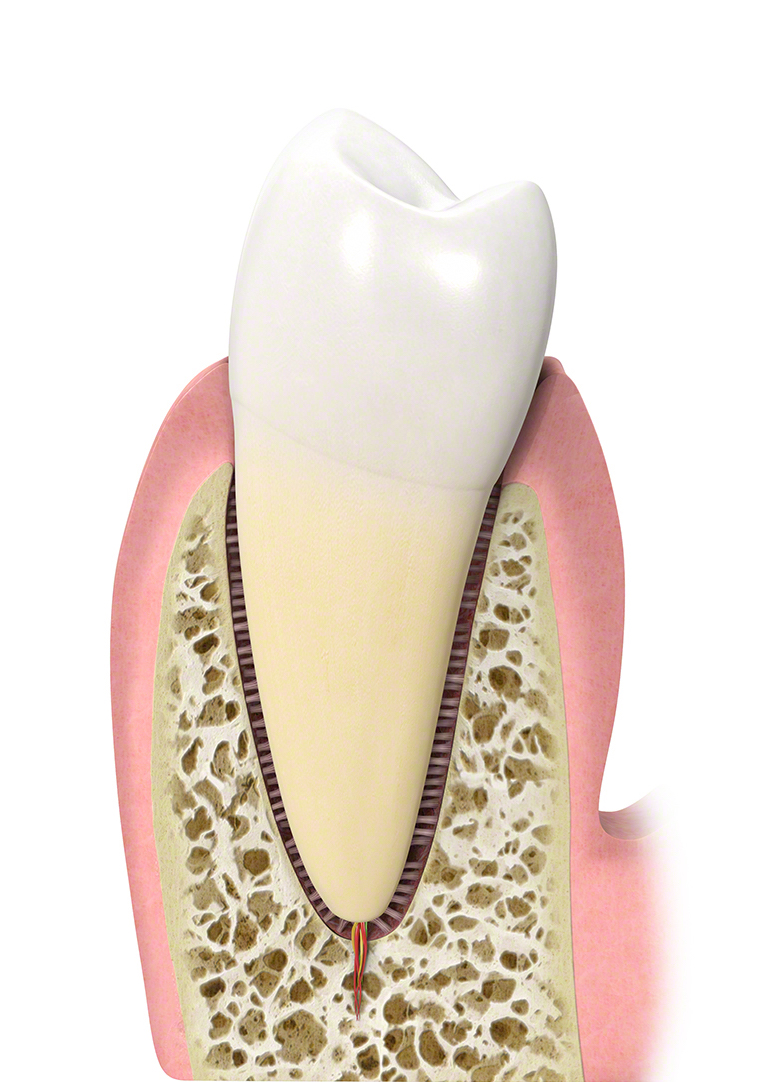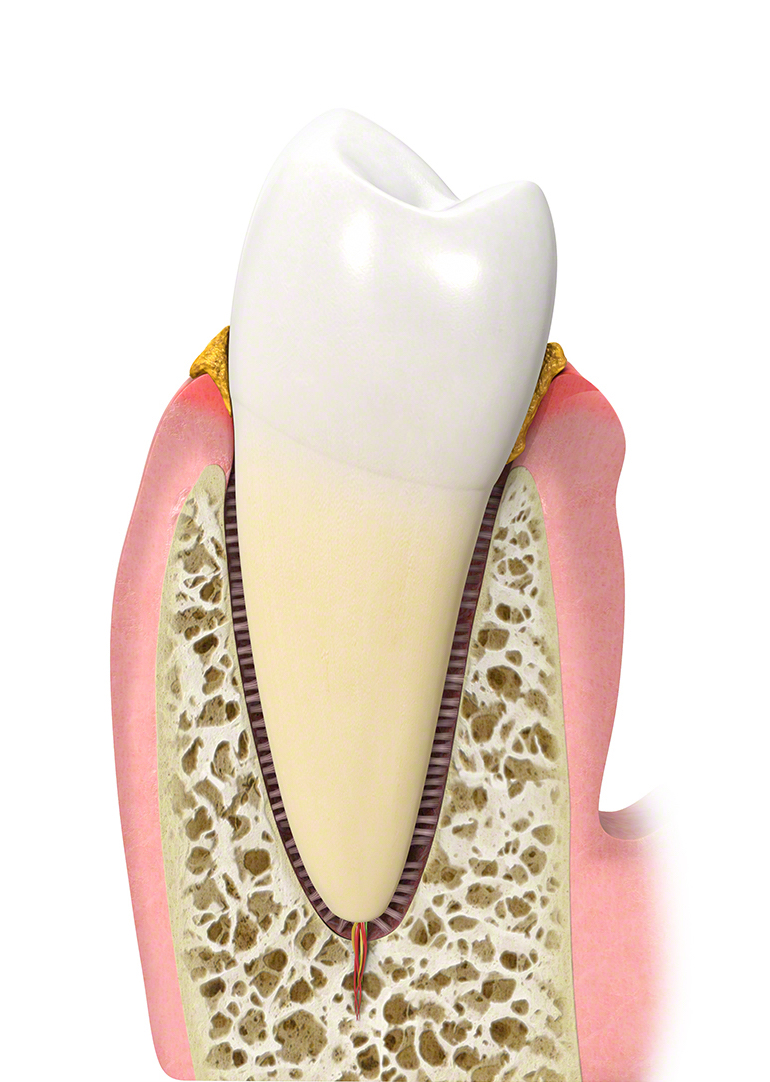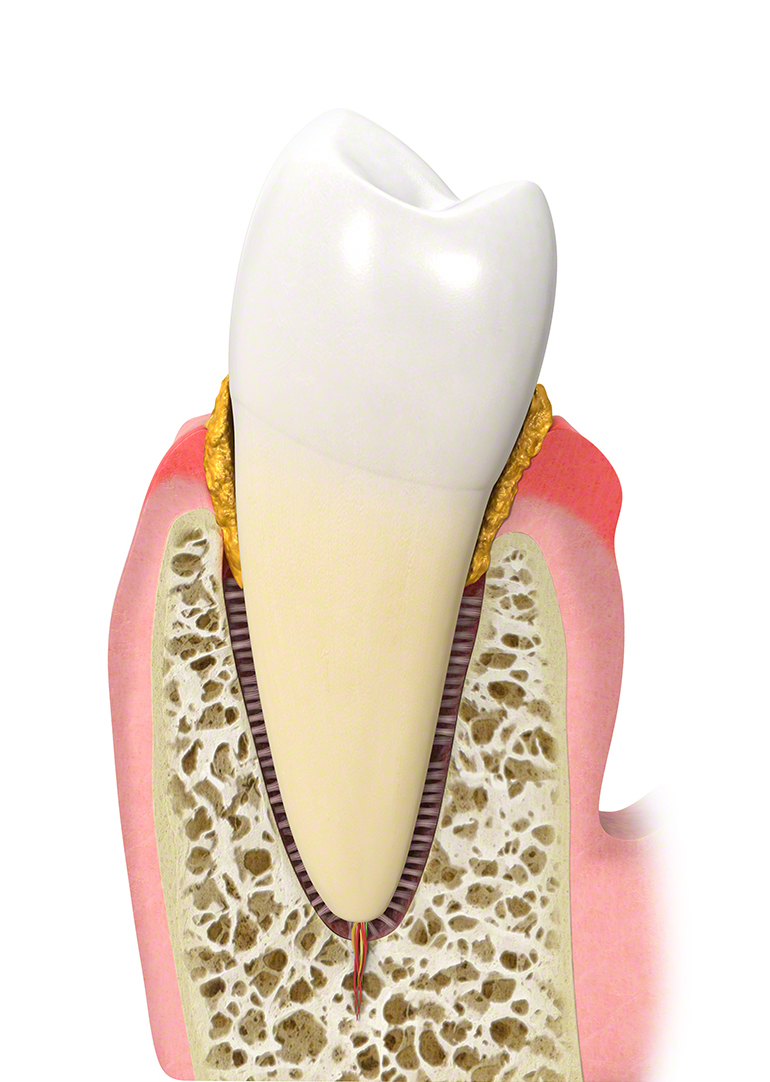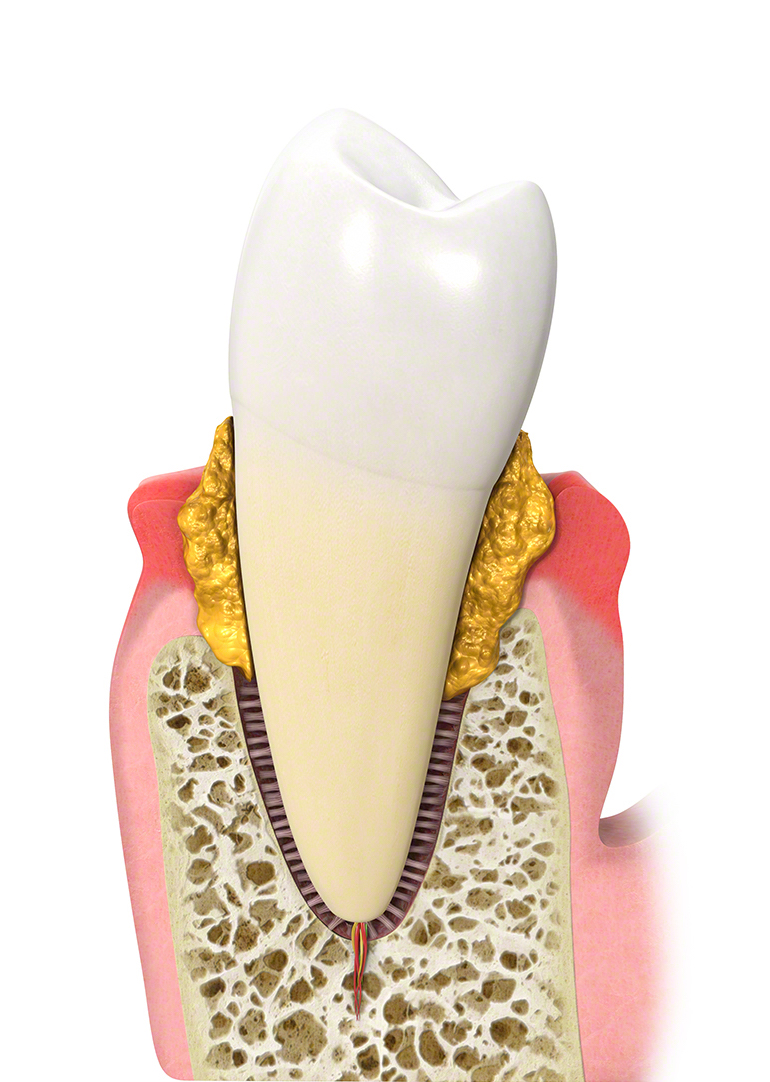Initial Dental Treatments
Many patients can benefit from treatment by a trained specialist with a greater understanding and higher level of expertise. This is increasingly the case as more patients are exhibiting signs of periodontal disease, coupled with research that suggests a relationship between periodontal disease and other chronic diseases of aging.
Periodontists receive extensive training, including three additional years of education beyond dental school. They are familiar with the latest techniques for diagnosing and treating periodontal disease, and are also trained in performing cosmetic periodontal procedures.

Stage 1 Gum Disease

Stage 2 Gum Disease

Stage 3 Gum Disease

Stage 4 Gum Disease
What is periodontal maintenance?
If you have been treated for periodontal disease and are now stable, periodontal maintenance is the best way to keep you there. It is an ongoing professional hygiene visit (cleaning) that occurs every three months. In a typical visit for periodontal maintenance, you can expect an oral cancer screening, appropriate x-rays, complete exam (very detailed evaluation of gum health), scaling, polish, and review of home care habits.
Contact us today at (913) 563-7400 to get started.
Antibiotic therapy
Antibiotic therapy can assist in the treatment and maintenance of periodontal disease. Local antibiotics are placed directly in the periodontal pocket after scaling and can improve the pocket depth. This type of treatment is used when a few areas need improvement (versus many areas) and for patients who are not candidates for surgical treatment. Systemic antibiotics can provide additional help with the treatment of advanced periodontal disease and are used in addition to scaling procedures.
Risk factors for gingivitis and periodontal disease
Gingivitis is caused by an excess of plaque bacteria on the teeth. When plaque hardens and forms tartar, the bacteria within it turn the immune system on to fight the infection.. While gingivitis can be treated if caught early on, gingivitis can easily develop into periodontitis and result in bone loss if left untreated. Find out if you’re at risk!
Is my dental cleaning different in a periodontal office?
Dental hygienists in a periodontal office receive the same initial education and undergo the same exams and certification processes as a dental hygienist in a general dental office. However, hygienists in periodontal offices have developed advanced practice skills, have more experience, and are more comfortable with complex oral health needs. Our hygienists have access to additional equipment and advanced continuing education that sets them apart from their general practice counterpart.
How Do I Prevent Periodontal Disease from Returning?
Oral disease can become painful and debilitating. Thankfully, it can be treated. However, good hygiene and maintenance is required in order to prevent oral disease from returning. Here are a few ways to stop periodontal disease in its tracks:
- Having professional scaling and polish of your teeth at least every three months. This should be customized to your needs and to that of your disease.
- Controlling medical conditions, such as diabetes, that influence periodontal disease.
- Moving through recommended treatment in a timely manner. Spreading your periodontal care out over years versus months may not allow you to achieve the best outcome.
- Maintaining excellent home care.
What Is a Periodontal “Pocket”?
A healthy pocket is a normal part of the tooth/gum structure. It’s a natural space between the tooth and the gum.
The gum folds in around the tooth 360 degrees and connects with the bone below.
With healthy gum, the pocket is shallow, measuring 4 millimeters or less.
In periodontal disease, the pocket can become deeper due to gum swelling, which traps bacterial plaque deeper than you can reach with your brush and floss. The plaque turns hard when the minerals in your saliva come in contact with it and creates tartar (calculus). Calculus is rough, which traps more plaque and subsequently more calculus. This cycle creates a high level of bacteria in your mouth that can result in increasing bone loss and eventually tooth loss if untreated.